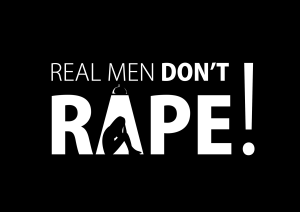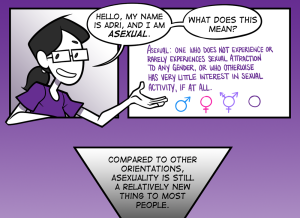In April of this year, the state of Tennessee became the first in the nation to pass a law that permits criminal charges to be filed against women who use illicit drugs while pregnant.
The law permits the arrest of those who carry their child to term, but are still struggling with addiction.
This law is yet another example of trying to solve a complex issue with a paint roller instead of a fine brush.
Further, this measure is not an attempt to solve a problem, but is more about politics and punishment. It is also cissexist since it specifically uses the word “women” and completely ignores that transgender men and non-binary people who can (and have!) become pregnant.
Many people have an immediate “throw their ass in jail” reaction when they think about people using drugs while pregnant, and they don’t really think about whether that solution is actually the best thing for the pregnant person or the pregnancy.
And I want to argue that, actually, it’s not.
So here are five reasons why criminalizing pregnant substance abusers is the wrong approach.
1. It’s Not Science-Based
There have been multiple court cases in several states in which pregnant women were arrested and charged with harming their fetus due to their drug addiction.
For the most part, these cases have been thrown out of court or the courts have found in the woman’s favor, not necessarily out of sympathy, but because the law did not define a child to also mean a fetus.
In 2001, the US Supreme Court ruled in the matter of Ferguson vs. City of Charleston. Between the years of 1989-1994, the state hospital in Charleston was searching and drug testing pregnant women and new mothers to find evidence of drug use and then providing the information to law enforcement.
Reports describe women who were shackled and arrested while still in bed bleeding after just giving birth. The Supreme Court ruled that this practice was unconstitutional, but left room for challenges in the future.
Over 70 medical, public health, and civil rights organizations joined amicus briefs to oppose the hospital’s policy. Many of these same organizations objected to the recent law in Tennessee.
Here are a few professional organizations that have officially opposed criminal punishments against pregnant people with substance abuse disorders
- American Medical Association
- American Academy of Pediatrics
- American College of Obstetricians and Gynecologists
- American Public Health Association
- American Nurses Association
- National Council on Alcoholism and Drug Dependence
Many organizations are concerned that pregnant people won’t seek prenatal care fearing they will be reported to law enforcement – which is arguably much more dangerous for the fetus. The Center for Substance Abuse Treatment pointed out that substance abuse is a public health issue and not a legal one, and that such actions haven’t been proven to be effective anyway.
Recommendations based on actual research for the treatment of substance abuse disorders in pregnant women do exist. The World Health Organization (WHO) published their recommendations for treatment, and mentioned that the potential for legal consequences for disclosing substance abuse while pregnant is actually a harm, not a benefit, to the woman.
So then, why do we pass such laws? Doing so certainly doesn’t suggest that the motivation is the welfare of pregnant people and the unborn.
However, supporters of such laws claim that that is exactly their concern. But I would like to hear their advice to these people when they try to get jobs to support their child with a criminal conviction on their record.
2. It May Increase Racial Disparities in the Criminal Justice System
No attack on women, or any other marginalized gender, seems to be complete unless it finds a way to target folks who are marginalized in additional ways, such as by race. Let’s go back to Ferguson vs. Charleston.
Around the time that the Charleston hospital had been working with law enforcement, the National Institute on Drug Abuse (NIDA) found that pregnant black women have higher rates of using illicit substances than pregnant white women; however, in terms of numbers, there were more pregnant white women abusing substances than pregnant black women.
So it should have been highly unusual that 41 of the 42 women who were arrested under the hospital’s practices were black. But it wasn’t.
Why? Because the focus was mostly on crack cocaine, which was known to be popular in lower-income black communities. They didn’t place emphasis on the use of alcohol or tobacco, which NIDA indicates is more commonly used among white pregnant women and can cause severe birth defects.
In fact, Fetal Alcohol Syndrome had increased six-fold around the time that the state hospital in Charleston was setting up women people of color for using crack cocaine.
Now, before someone says that it is acceptable to arrest a pregnant person for using crack cocaine instead of alcohol because using cocaine is illegal, remember that alcohol would only be legal for the pregnant person, so then they should at least be charged with providing alcohol to a minor.
Of course, this idea is ridiculous. But then again, punishing pregnant people for any of this is ridiculous.
We can’t be certain of how Tennessee’s new law will impact pregnant people of color, but based on history, it is an issue that we must keep an eye on.
3. It Ignores Factors Related to Substance Abuse
One thing that really frustrates me as a therapist about this measure is that it completely ignores any and all circumstances as to how the person became addicted in the first place.
And in my mind, this is just more proof that people will go all out for the unborn, but couldn’t care less about those who draw breath.
Research is pretty clear that issues such as abuse, mental health disorders, poverty, homelessness, and even predisposition to using substances may be partially responsible for someone abusing drugs or alcohol.
Legal pressure may sometimes be necessary to get a person to attend and stay in treatment. Family members and medical providers can sometimes request that the court require someone to have a chemical dependency evaluation and possibly treatment.
The problem for those in the criminal justice system is that they frequently receive inadequate treatment for their substance abuse, while paying the long-term consequences of having a criminal record. Substance abuse treatment is one of the main options linked to preventing relapse and more criminal behavior related to drug use.
How is requiring treatment different from charging pregnant substance abusers? It’s different because pregnant substance abusers can be charged with crimes that people who can’t become pregnant will never be charged with. They may have simply shown up at the hospital to give birth and end up with a criminal charge. Essentially, the law punishes the person for their pregnancy, not their substance use since there are already laws against that. It is not really designed to help anyone and it discourages the person from seeking treatment on their own.
Doubling down on the stressors by adding a criminal charge not only demonstrates apathy toward their experiences, but also does nothing to address the size and scope of the problem.
4. There’s an Ulterior Motive
It has been suggested that the Tennessee law may one day be used as a backdoor way to set up future challenges to Roe vs. Wade, which protects a person’s right to have a legal abortion. Conservatives have long advocated for the establishment of “personhood” for the fetus, and by doing so, making it illegal to terminate a pregnancy since it would be akin to murder.
One could argue that this Tennessee law essentially gives a type of personhood status to the fetus, because it allows people to be charged with crimes based on their behaviors while pregnant.
If it becomes acceptable to charge people with such crimes while pregnant using the argument that the fetus has rights, then it’s not hard to imagine that this same argument could be used to challenge abortion rights. The law would also indicate that the fetus’s rights are superior to that of the pregnant person.
5. It’s Cherry-Picking One Behavior and Ignoring Others
One would think that if the intent of this law is to protect the fetus from addiction, then it would encompass all addictive behaviors that may be harmful to the fetus. Why not arrest pregnant people who smoke cigarettes?
Someone might say that smoking cigarettes is not illegal, but that shouldn’t really make a difference if the point is that the fetus is in danger because of the pregnant person’s behaviors. A fetus would be no less harmed just because one behavior is illegal and the other is not.
According to statistics, approximately 15% of pregnant women between the ages of 15-44 smoke cigarettes, whereas only 5% use illicit drugs.
Research has determined that smoking while pregnant may lead to health problems in the fetus and to the child after birth.
So again, what’s the difference? The difference is that we would have more privileged people being arrested if such a law existed. The difference is that this law appeals to certain conservative people who like to punish folks for getting pregnant.
One has to wonder how far we could go in “protecting” the unborn from our behaviors. Research indicates that poor management of diabetes while pregnant can lead to multiple health problems to the fetus or newborn. So, should we begin arresting every pregnant diabetic person we catch eating a Kit Kat?
This probably sounds absurd, because there would be no guarantee that the fetus would be born with any health problems, and that would be true. But it is equally true that not every person who uses illicit drugs will give birth to a child who has a health problem.
As usual, men seem to be given a pass on this issue. Nobody is suggesting that men who knowingly impregnate people who are substance abusers be arrested. It is assumed that men’s addictive behaviors can’t impact a pregnancy.
But maybe we should take a second look at that.
There has been research that suggests that males who can reproduce and abuse alcohol may damage their reproductive system and possibly cause birth defects in their offspring. It can’t be proven that his drinking or drug use will definitely and always cause birth defects, but then again, such proof has never been established, regardless of gender.
So, it may be possible that the man’s drinking may cause some birth defects, and we may be arresting the wrong person. Or perhaps not enough people?
I want to make it clear that I am not advocating for anyone to be arrested over this issue, just as I’m not really suggesting that we should arrest pregnant people with diabetes or those who smoke.
What I am saying is that this law is narrowly focused, solely directed toward women, not designed help anyone, and based strongly on politics.
***
When it comes to issues like this, it’s so easy to react based on emotion and frustration, rather than on what is actually the right thing to do. I would ask people to push back that inclination on this topic.
If you really want to help a pregnant person who is struggling with substance abuse, then reserve judgment, provide support, and offer resources when they are ready to get help.
[do_widget id=”text-101″]
Dr. Robin Landwehr is a Contributing Writer for Everyday Feminism She’s a mental health counselor and an unapologetic feminist. She holds a Doctor of Behavioral Health degree from Arizona State University, a M.S. degree in Mental Health Counseling from Capella University, and is a licensed counselor in North Dakota and Florida. She is a National Certified Counselor through the National Board for Certified Counselors. Robin has worked in several areas of human services including: domestic and sexual violence, substance abuse, homelessness, child abuse and neglect, mental health disorders, and health concerns that are affected by our behaviors. You can follow Robin on Twitter @RobinLandwehr1 or visit her sometimes neglected personal blog at the Hippie in Me Blog.
Search our 3000+ articles!
Read our articles about:
Our online racial justice training
Used by hundreds of universities, non-profits, and businesses.
Click to learn more





















